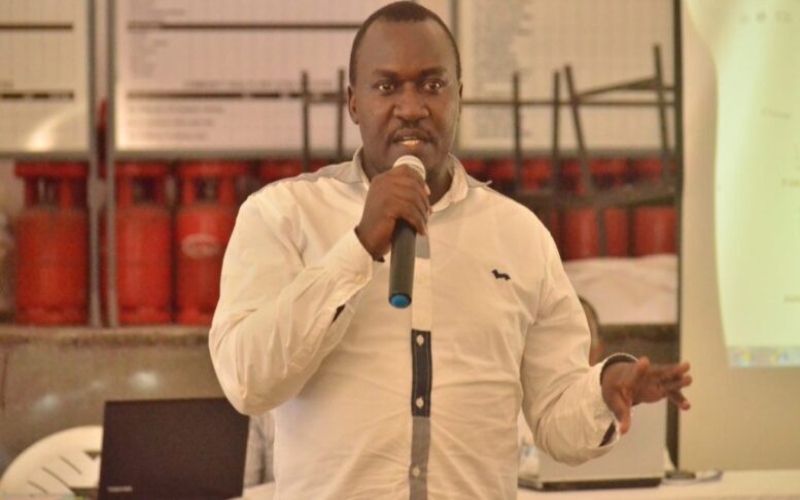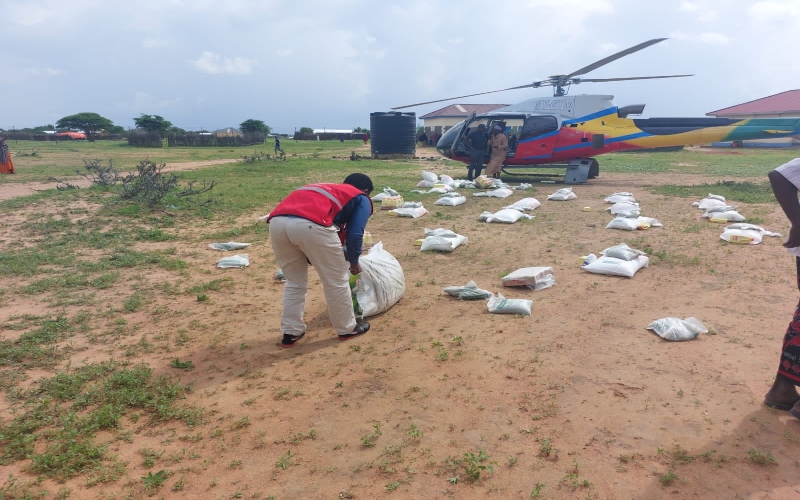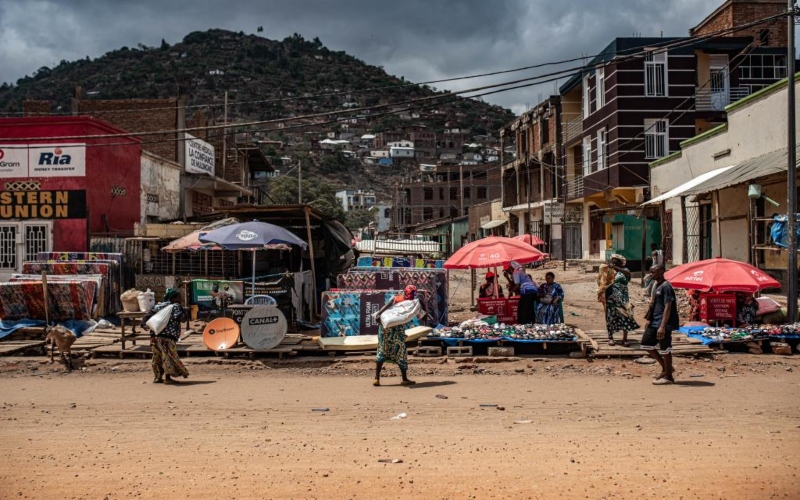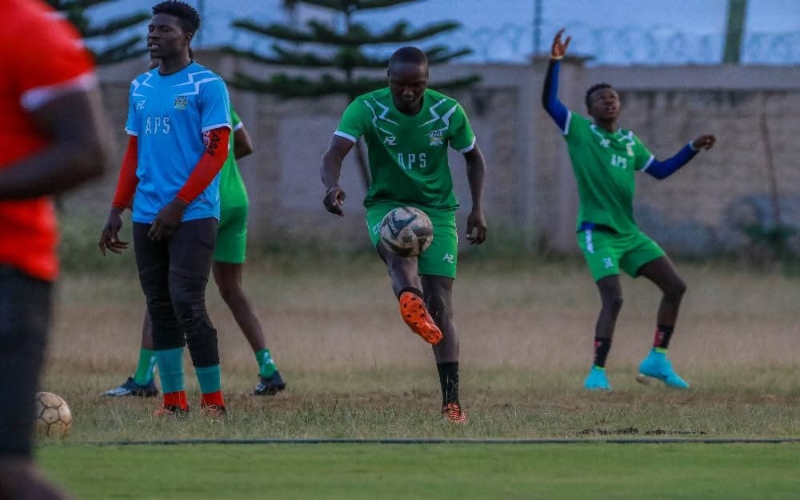Khartoum declares curfew over security concerns
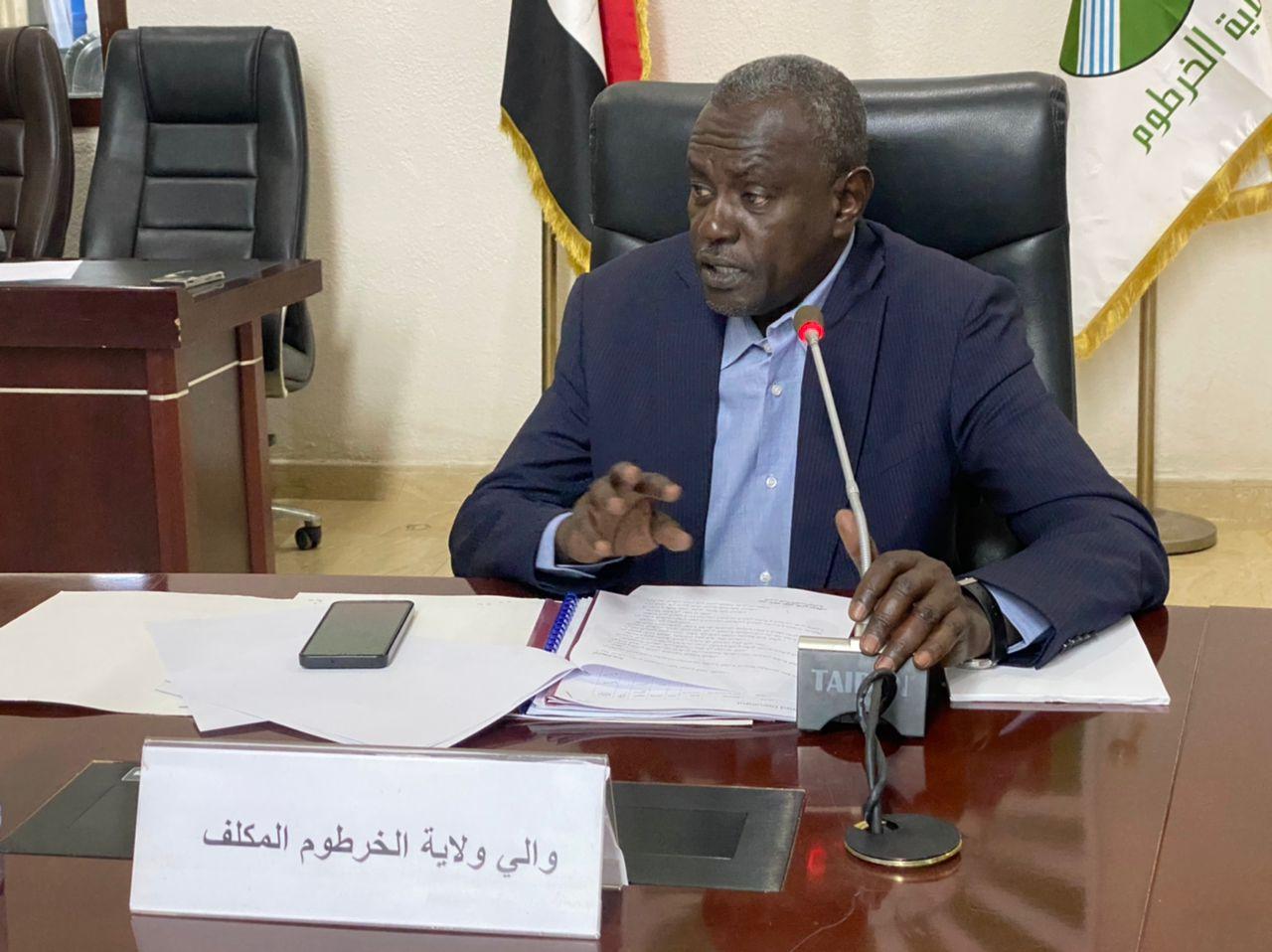
The curfew restricts the movement of people and vehicles between 11 pm and 5 am and bans all commercial activities and pedestrian movement between 10 pm and 5 am.
The acting governor of Khartoum state Ahmed Osman Hamza has imposed a curfew across the state, the local newspaper Sudan Tribune now says.
The curfew restricts the movement of people and vehicles between 11 pm and 5 am and bans all commercial activities and pedestrian movement between 10 pm and 5 am.
More To Read
- Six UN peacekeepers laid to rest following deadly drone attack in Sudan
- EU launches Sh530 million airlift to deliver life-saving aid to Darfur amid deepening Sudan crisis
- UN Secretary-General condemns ‘horrific’ drone strike on peacekeepers in Sudan
- Nine dead, 17 injured in RSF drone strike on Sudan’s Dilling military hospital
- UN chief alarmed by drone strike killing over 30 Sudanese civilians
- Sudan war: Aid teams say deal struck to reach stricken El Fasher
"The order cites security concerns as justification for protecting citizens," the paper adds.
Sudan has been facing conflict since April 2023 when a war broke out between the Sudanese Armed Forces and the Rapid Support Forces (RSF) leading to a catastrophic humanitarian crisis.
According to Plan International, the conflict had killed over 13,900 by April 15 and left 15 million others in need of humanitarian assistance.
"Experts have voiced alarm over the security situation in government-controlled areas of Khartoum and other Sudanese cities. They argue that the current measures are insufficient to address the wartime threats facing the country, and are calling for a more robust security approach," the Sudan Tribune reported on Monday night.
Khartoum is controlled both by the army and the RSF, with the army governing Karari where the Khartoum State governor is currently operating from and Old parts of Omdurman while the paramilitary group governs Umbada, Khartoum and Khartoum Bahri.
State of emergency
The curfew comes days after the acting governor issued a state of emergency on May 2 that was also approved by Abdel Fattah Al-Burhan, the military leader "to regulate the presence of foreigners that has become a threat to national security."
The paper reported that authorities claimed that some foreigners have been participating in the fighting alongside the paramilitary Rapid Support Forces
Efforts to end the ongoing conflict received a major boost on Saturday when the official mediation process between the Juba administration and opposition delegates dubbed "Tumaini" was launched in Nairobi.
The talks chaired by mediator Major-General (Rtd) Lazarus Sumbeiywo have however been rejected by a faction of the South Sudan Opposition Movements Alliance (SSOMA) which expressed safety concerns regarding the venue and the lack of response to their request to continue talks in Rome, Italy with Community Sant'Egidio as co-mediators.
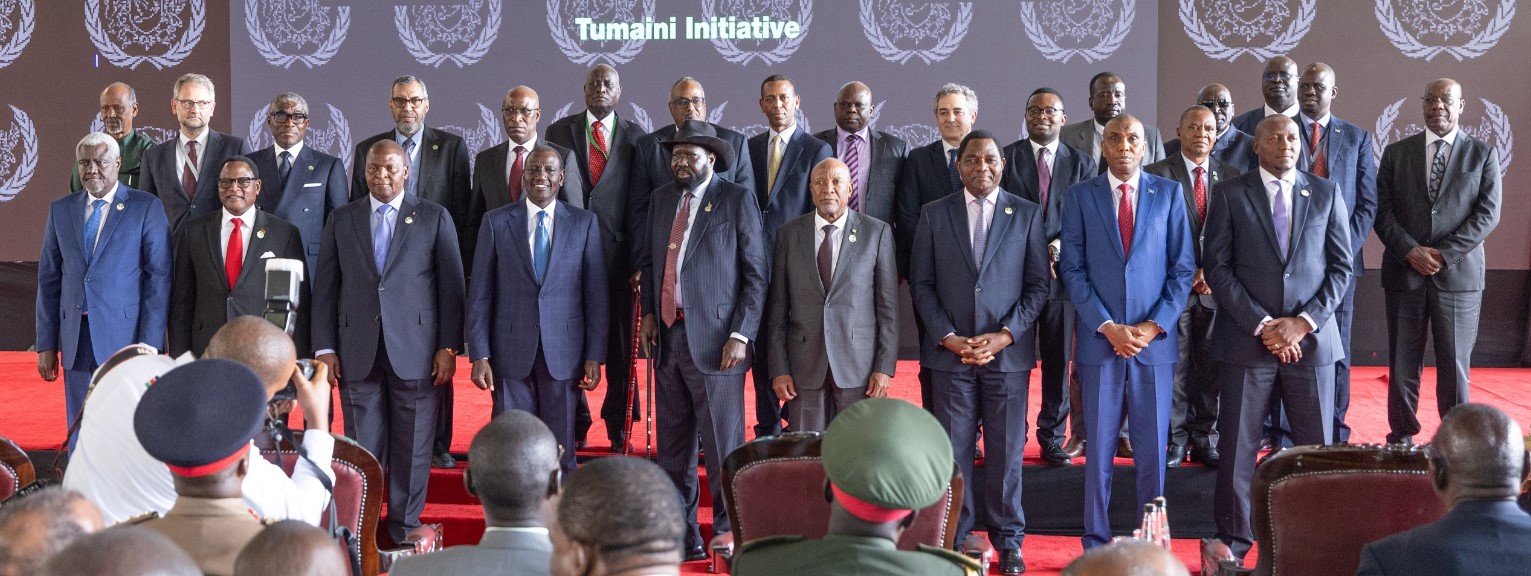 Presidents William Ruto (Kenya) Lazarus Chakwera (Malawi), Hakainde Hichilema (Zambia), Faustin-Archange Touadéra (Central African Republic), Emmerson Mnangagwa (Zimbabwe), Salva Kiir (South Sudan), Somalia Prime Minister Hamza Abdi Barre and the AUC Chairperson Moussa Faki witness the launch of the South Sudan Mediation Process chaired by Lazarus Sumbeiywo at State House, Nairobi, on Thursday, May 9, 2024. (Photo: PCS)
Presidents William Ruto (Kenya) Lazarus Chakwera (Malawi), Hakainde Hichilema (Zambia), Faustin-Archange Touadéra (Central African Republic), Emmerson Mnangagwa (Zimbabwe), Salva Kiir (South Sudan), Somalia Prime Minister Hamza Abdi Barre and the AUC Chairperson Moussa Faki witness the launch of the South Sudan Mediation Process chaired by Lazarus Sumbeiywo at State House, Nairobi, on Thursday, May 9, 2024. (Photo: PCS)Presidents William Ruto (Kenya) Lazarus Chakwera (Malawi), Hakainde Hichilema (Zambia), Faustin-Archange Touadéra (Central African Republic), Emmerson Mnangagwa (Zimbabwe), Salva Kiir (South Sudan), Somalia Prime Minister Hamza Abdi Barre and the AUC Chairperson Moussa Faki witness the launch of the South Sudan Mediation Process chaired by Lazarus Sumbeiywo at State House, Nairobi on Thursday, May 10, 2024. (Photo: PCS)
"While SSOMA was waiting for a notice from Sant'Egidio about the resumption of talks, SSOMA was shocked to learn on December 26, 2023, from social media about the unilateral decision of President Salva Kiir transferring the mediation process to President William Ruto of Kenya with Nairobi as the venue. Juba seems to want a venue and environment where the opposition will be intimidated, coerced, and forced to sign a flawed agreement, as was the case with the R-ARCSS in 2018 in Khartoum, Sudan," The group said in a statement a day before the launch of the talks.
The Society of Sant Egidio in Rome had led the talks between the government and armed groups until last year.
Peace deal
Later, President Ruto agreed to mediate what could be an addendum to the 2018 peace deal between the ruling South Sudan People's Liberation Movement (SPLM) under President Salva Kiir and several armed groups.
On Saturday, President Ruto said Kenya undertakes to be at the centre of the South Sudan mediation process and that Africa cannot afford further conflicts.
"As leaders, we must live up to our responsibilities. We are persuaded that this inclusive initiative will sustain durable peace, stability, and progress in South Sudan and East Africa," he said during the meeting attended by Presidents Salva Kiir (South Sudan), Lazarus Chakwera (Malawi), Hakainde Hichilema (Zambia), Faustin-Archange Touadéra (Central African Republic), Emmerson Mnangagwa (Zimbabwe), Somalia Prime Minister Hamza Abdi Barre and the African Union Commission Chairperson Moussa Faki.
He added that the Tumaini Initiative has brought together eight categories of parties and groups, ensuring the process is inclusive and home-grown.
"This initiative exemplifies the Pan-African policy of African solutions to African challenges, contributing to the 'Silencing the Guns in Africa initiative' and fostering an environment for transformational development in South Sudan, our region, and the entire African continent," he said.
On his part, President Kiir said the South Sudan government will negotiate in good faith and with an open mind.
"We hope that the opposition groups have a similar conviction and desire for peace in South Sudan, which, when fully achieved, will bring everlasting stability and economic development in the region, not just South Sudan," he said.
President Hichilema encouraged the participants in the peace process to be accommodating and engage in genuine negotiations with a spirit of give and take.
"In today's world, no one really wins the war; you may win a battle, but the war continues," he noted.
The chief mediator in the process said the mediation team has consulted widely with the parties involved to ensure the process is inclusive.
"After this launch, we plan to engage in sustained and continuous mediation to ensure a speedy and comprehensive resolution of the issues, so long as the parties go along with the plan.
Top Stories Today

